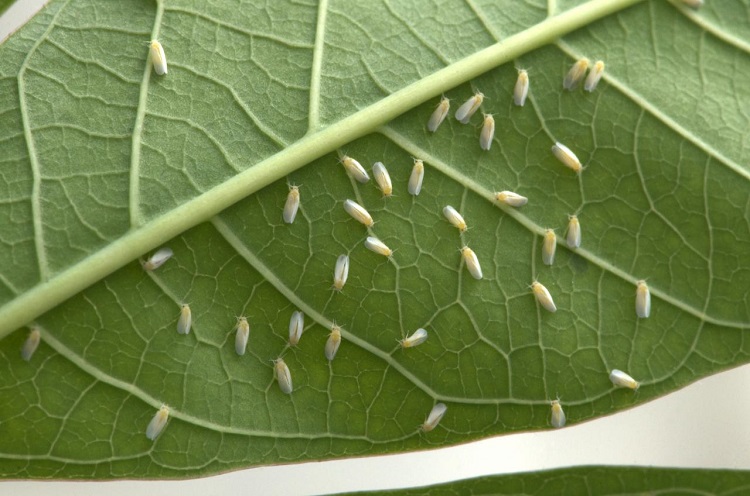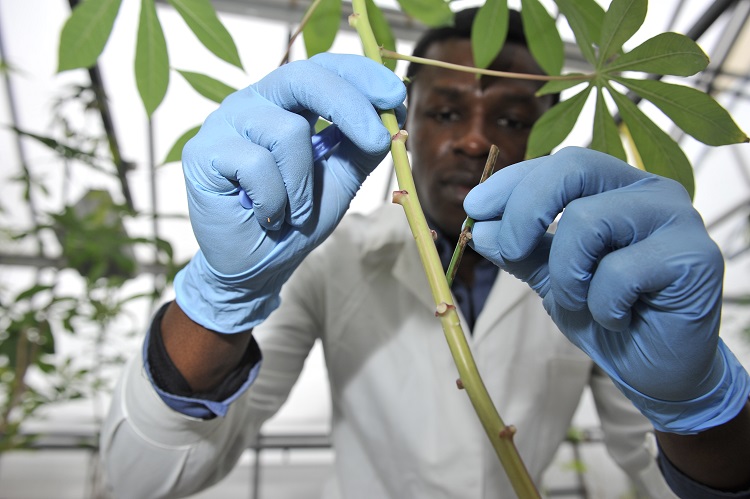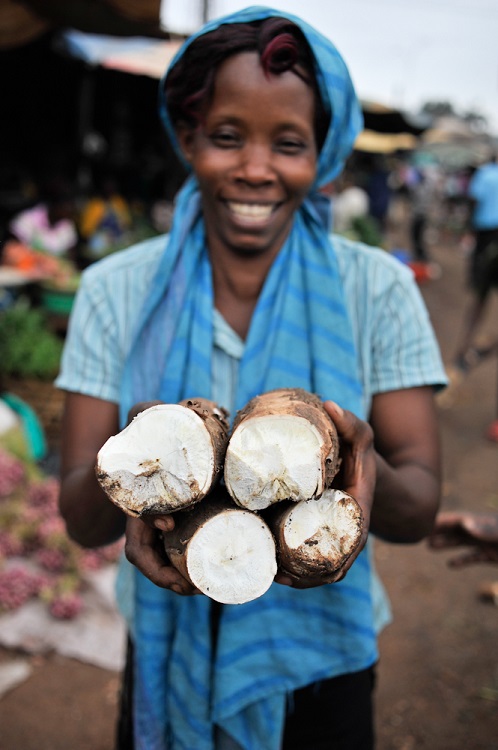
NRI was recently awarded a USD 15.75 million grant from the Bill & Melinda Gates Foundation for a project entitled African cassava whitefly: outbreak causes and sustainable solutions.
African cassava whitefly (Bemisia tabaci) is the scientific name given to a number of morphologically indistinguishable insect species that are responsible for transmitting (or ‘vectoring’) a large number of plant-viruses. The most important of these are viruses causing the ongoing and devastating East African pandemics of Cassava Mosaic Disease (CMD) and Cassava Brown Streak Disease (CBSD).
Since the 1990s, there has been an unprecedented increase in the abundance of cassava whitefly in the cassava growing regions of East and Central Africa, which has in turn increased the spread of CMD and CBSD, though the factors responsible for increased whitefly abundance remain uncertain. Production losses in nine East and Central African countries have been estimated as high as 47% and affected areas are continuing to expand, resulting in hunger, recurrent famines and annual losses of more than USD 1.25 billion.
The previous lack of research into the whitefly vector component of pandemic spread is arguably the main reason why a lasting solution has remained elusive. This new project will address this urgent need by providing a rigorous understanding of the causes of super-abundant cassava whitefly populations in East and Central Africa and thereby creating the foundations for future, durable-control solutions.
The project is led by NRI's Professor John Colvin, and Dr Peter Sseruwagi based at Mikocheni Agricultural Resources Institute (MARI), Tanzania. Other key NRI scientific staff include Professor Susan Seal, Dr Maruthi Gowda, and Simon Springate providing a broad range of whitefly expertise, supported by administrative manager Mark Parnell. The wider scientific team consists of 14 partners from ten countries and the entire team will carry out an estimated 156 person-years of work during the next four years.
The project is also highly focussed on scientific capacity building. Four African PhD students will register with the University of Greenwich to be based at NRI, two African MSc students will register with Universities in Uganda and Tanzania, and five further African PhD students will register at African, Spanish and Australian universities. They will all receive specialist training at both NRI and participating international research institutes. Further information on upcoming studentship opportunities can be found here. In addition, the project team will draw on the expertise of excellent African early-career researchers to fill at least seven new scientific posts and women with good Bachelor of Science degrees will be encouraged to apply. Further information on the position of Field Ecologist, based at MARI, can be found here.
This ground-breaking project is an exciting opportunity to create system-wide change to benefit smallholder farmers in Africa. Improving cassava-whitefly control and reducing the spread of cassava-virus diseases will address the need to improve rural incomes and the productivity of smallholder farmers. The anticipated increase in yields, their reliability and sustainability will feed through to aiding the self-reliance of smallholders and reduce the risks of food dependency and famines caused by whitefly-borne, cassava-disease epidemics.
A project website will be set up in the near future, with information and news related to the Cassava Whitefly Project.
Main partners and organisations:
- Dr. Luis-Augusto Becerra, CIAT, Colombia
- Dr. Laura M. Boykin University of Western Australia, Australia
- Dr. Paul De Barro, Commonwealth, Scientific, Industrial Research Organisation, Australia
- Prof. Angela Douglas, Cornell University, USA
- Prof. Paul Fraser, Royal Holloway University of London, United Kingdom
- Dr. Donald Kachigamba, Department of Agricultural Research Services, Malawi
- Dr. Paul Kersey, European Molecular Biology Laboratory, EBI, United Kingdom
- Prof. Shu-Sheng Liu, Zhejiang University, China
- Dr. Shai Morin, The Hebrew University of Jerusalem, Israel
- Dr. Jesús Navas-Castillo, Instituto de Hortofruticultura Subtropical y Mediterránea "La Mayora", Spain
- Dr. Joseph Ndunguru, Mikocheni Agricultural Research Institute,Tanzania
- Dr. Christopher Omongo, National Crops Resources Research Insititute, Uganda
- Dr. Andrew Polaszek, Natural History Museum, United Kingdom
- Prof. Linda Walling, University of California–Riverside, USA
Links: Contact

